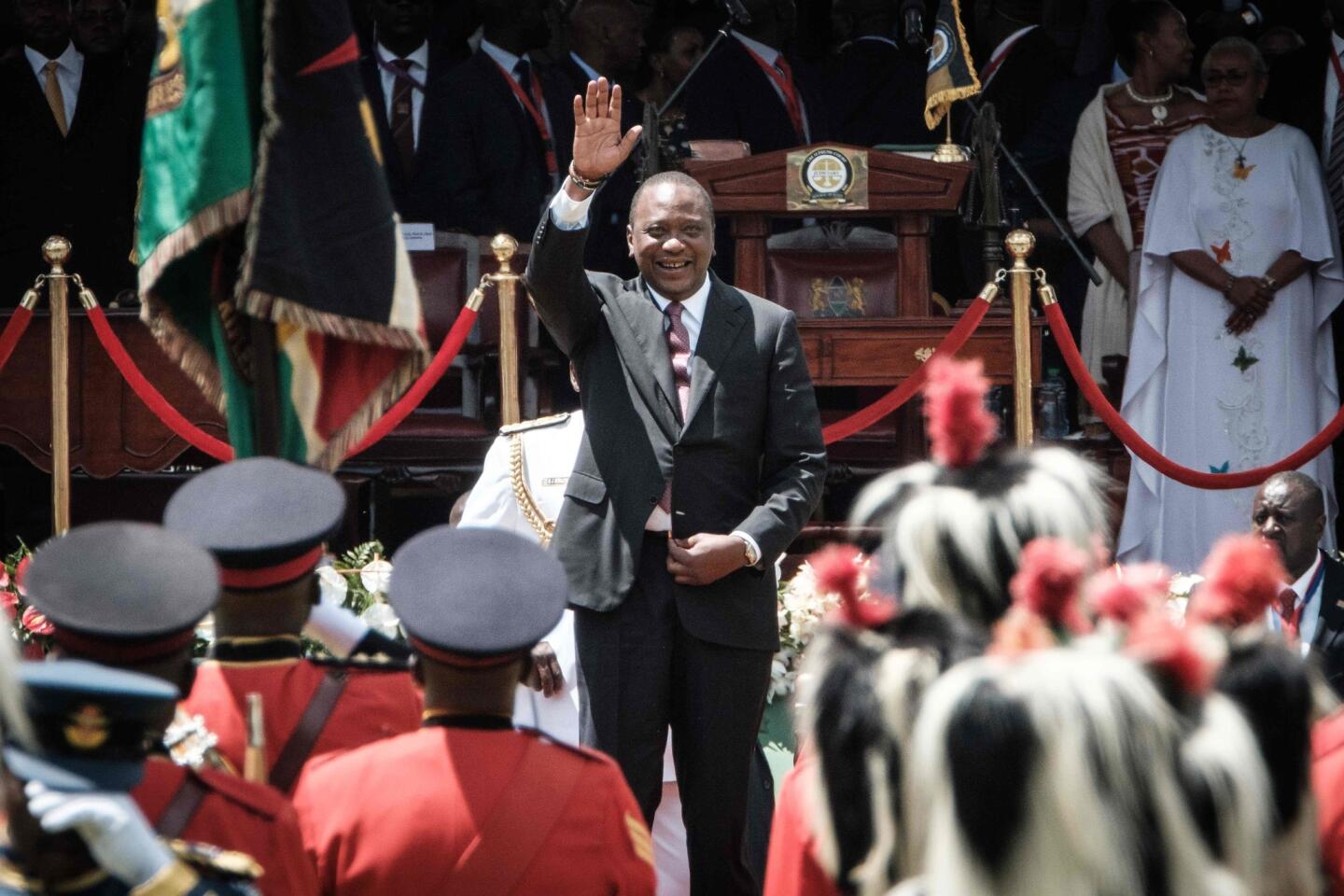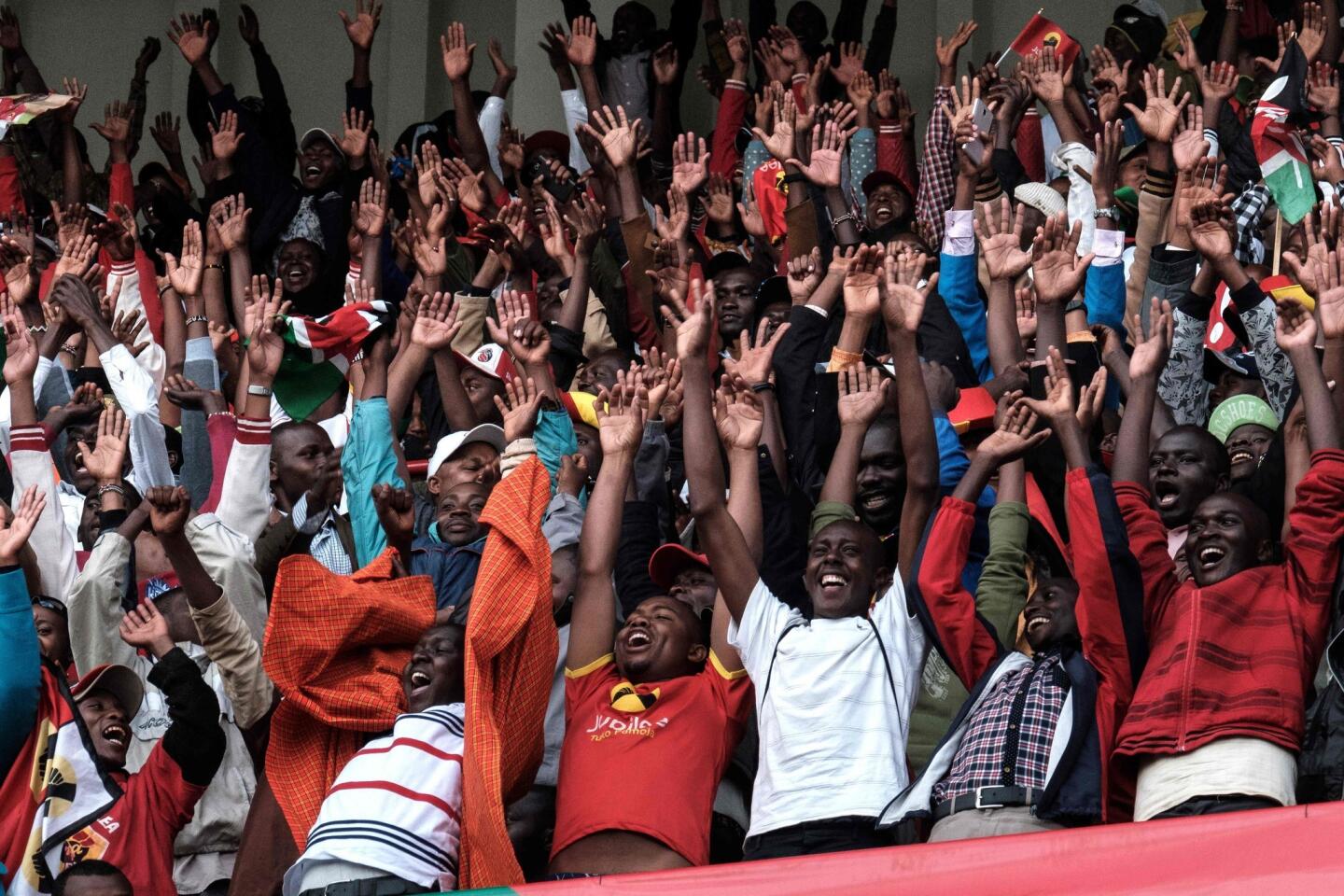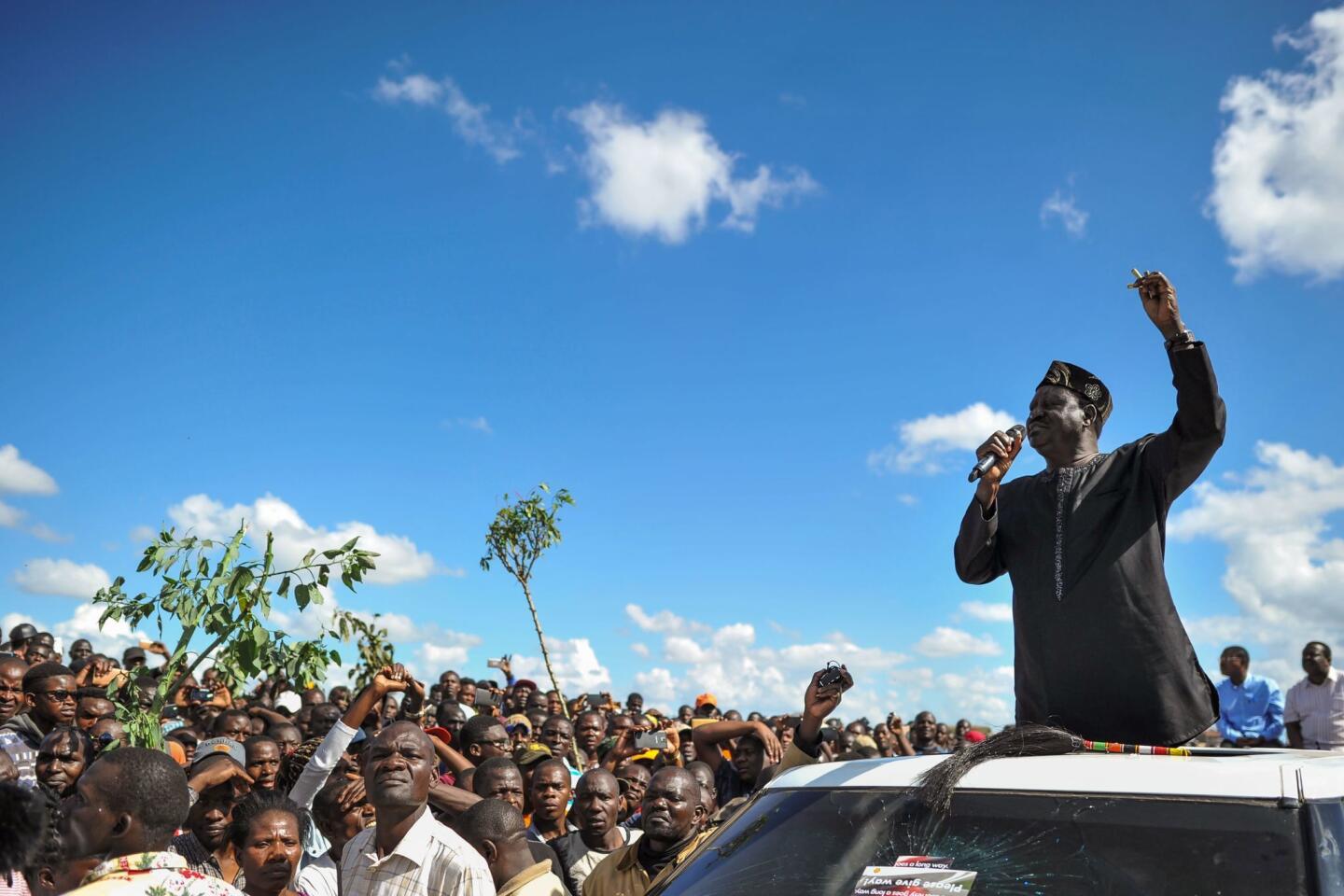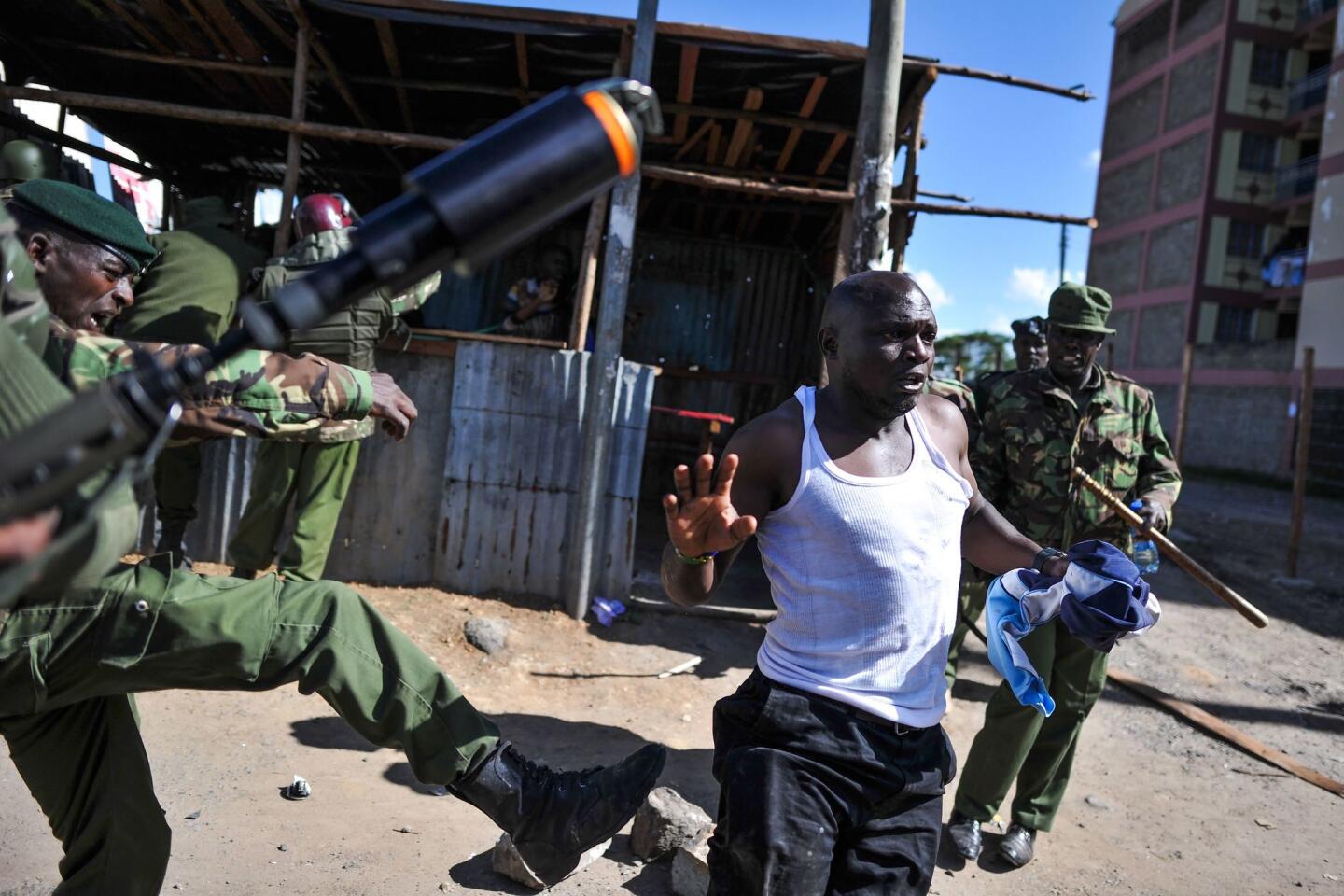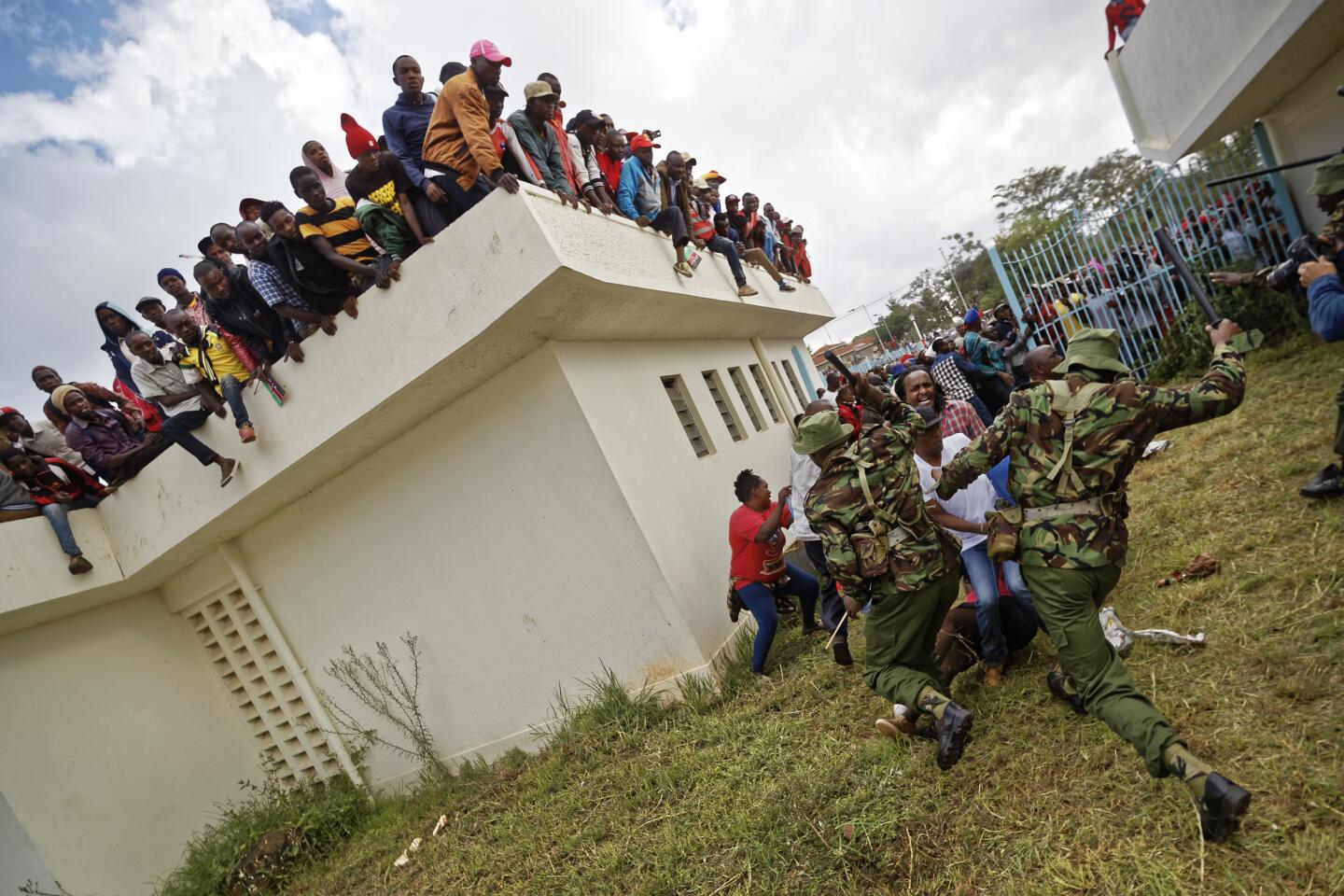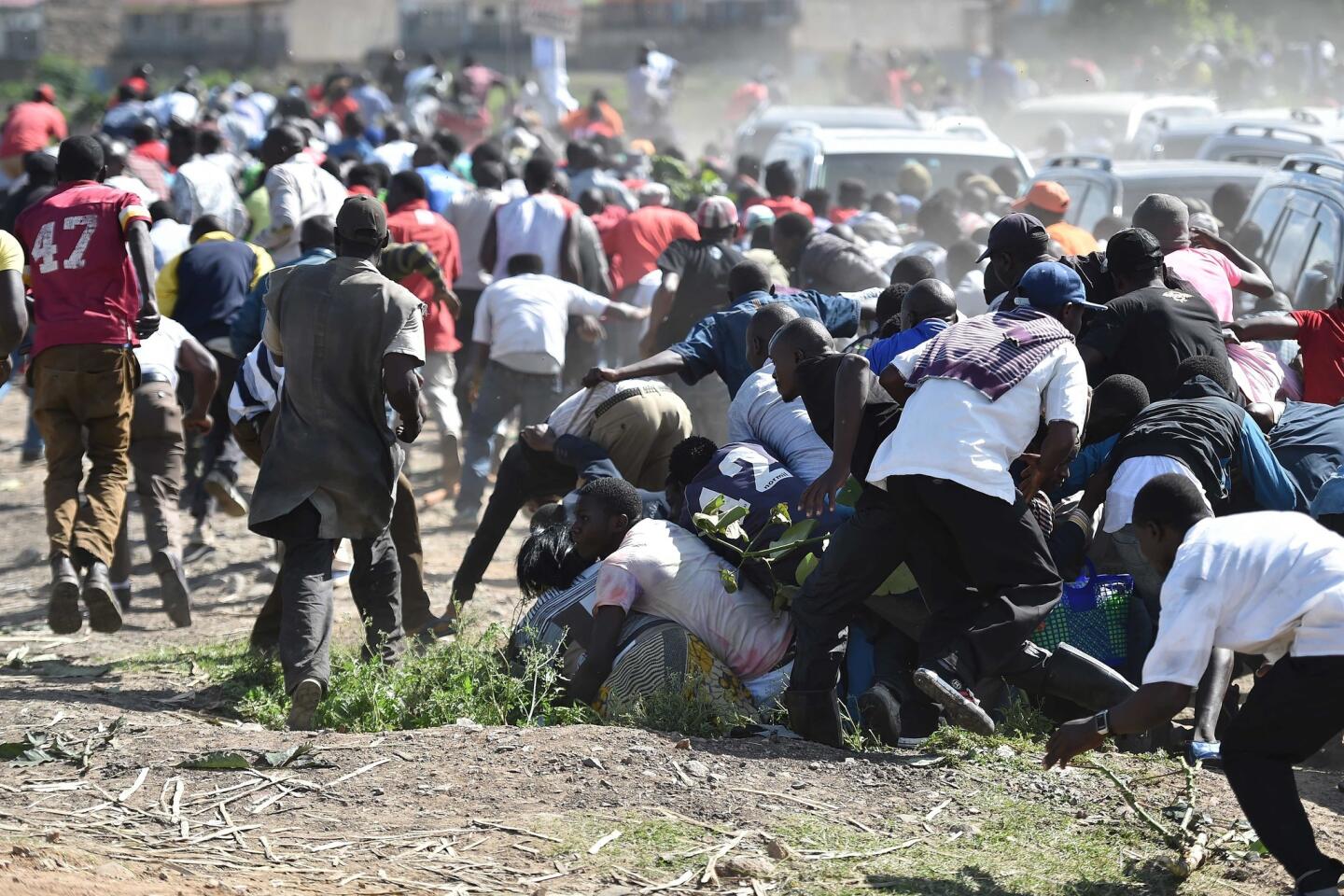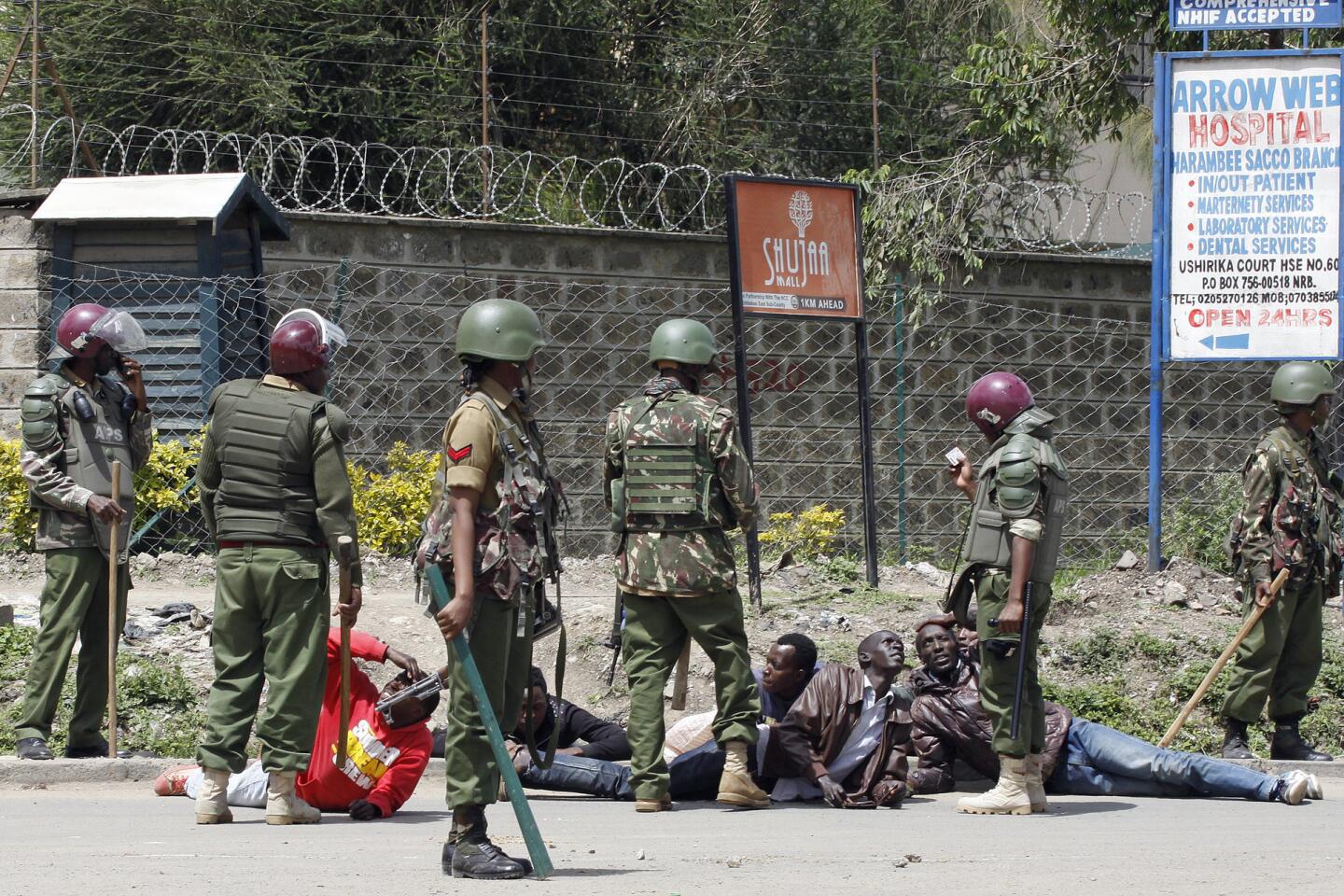Kenya president sworn in for second term after months-long election turmoil
- Share via
Reporting from NAIROBI, Kenya — Kenyan President Uhuru Kenyatta was sworn in for a second term Tuesday in what some hoped would be the end of months of election turmoil, which Kenyatta said stretched the country “almost to the breaking point.” But violence continued, with at least three people killed as police fired rifles and tear gas to break up a large opposition gathering.
During and after Kenyatta’s inauguration, police elsewhere in the capital, Nairobi, tried to stop the opposition from holding peaceful demonstrations to mourn dozens killed by police and militia since the original August election. Opposition leader Raila Odinga, who was shoved into his vehicle amid clouds of tear gas shortly after he called Kenyatta’s presidency illegitimate, put the death toll at three.
Associated Press video shows the crowd fleeing amid the sound of gunfire, and then helmeted security forces striking unarmed people with batons. Other people dipped water from slum puddles to clean their eyes.
Kenyatta, speaking to a cheering crowd at a local stadium, said the past few months “have been a trying time,” and he called for an end to hate and divisiveness. He again criticized the Supreme Court’s nullification of his August election win, saying that “despite ... being told that the processes matter more than your vote, we complied.”
But he added that the court, whose justices he once called “crooks” for their ruling, acted with independence, and he said the recent events show that “our constitution is no piece of paper.” Institutions should not be destroyed whenever they don’t deliver the desired results, he added.
Kenya’s election drama has meant months of uncertainty in East Africa’s economic hub. The court in nullifying the August result cited irregularities after a legal challenge by opposition leader Odinga, and it ordered a new vote.
It was the first time in Africa that a court had nullified a presidential election, and Kenya’s events have been closely watched cross the continent by opposition parties and leaders alike.
Odinga and his supporters boycotted the repeat election last month, saying electoral reforms had not been made. Many opposition supporters on Tuesday were heeding Odinga’s call to gather and remember those killed in the months of turmoil.
Human rights groups have repeatedly accused police of being used by Kenyatta’s government to crush dissent.
Odinga has called Kenyatta’s inauguration a “coronation” instead, and he called Kenyatta a dictator and vowed to pursue fresh elections.
Kenyatta said his inauguration “marks the end, and I repeat the end, of our electoral process.” He praised the resilience of Kenyans during what he said were the 123 days since the turmoil began.
“To my competitors, and in the spirit of inclusivity, I will endeavor to incorporate some of their ideas,” Kenyatta said. “The election was not a contest between a good dream and a bad dream. It was a contest between two competing visions.” He pledged to build bridges to unite Kenyans.
Several regional heads of state attended the inauguration amid tight security as the country attempted to move forward, even as questions about electoral reforms lingered.
In a move to improve continental ties, Kenyatta announced that all Africans will be able to obtain a visa on arrival at a port of entry. A growing number of African nations are making moves toward easing travel restrictions for people across the continent.
Kenyatta was sworn in using a Bible that had been used to swear in his father, founding President Jomo Kenyatta, at independence in 1963. His rivalry with Odinga, the son of Kenya’s first vice president, has gone on for years.
More to Read
Sign up for Essential California
The most important California stories and recommendations in your inbox every morning.
You may occasionally receive promotional content from the Los Angeles Times.
